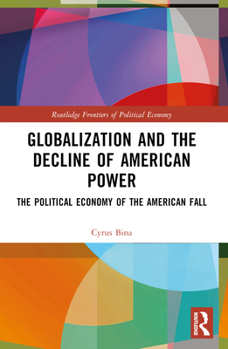Globalization and the Decline of American Power: The Political Economy of the American Fall
Select Format
Select Condition 
Book Overview
This book explores America's decline as a global power, arguing that the implosion of Pax Americana was initiated by the process of globalization, preceding the collapse of the Soviet Union by nearly a decade. The era of Pax Americana, and with it American hegemony, is conclusively passed, and will not return in current global conditions.
There is a stark contrast between the present epoch and the postwar era of American hegemony (1945-1979) in which the United States, at least outside of the Soviet sphere of influence, largely managed the international economy and reigned over international politics and relations. Drawing on both theoretical and empirical evidence, this book shows that the era of globalization unleashed forces--social, political, and economic--which broke down the status quo of American hegemony. Author Cyrus Bina also establishes that since the Iranian Revolution (1979), US involvement throughout the Middle East, in Iraq, Afghanistan, Libya, Syria, Yemen, and now notably in Ukraine has been motivated by the freefall of American hegemony and an attempt to get it back by direct or indirect military force. Bina utilizes these contexts for wider analysis and critique of a number of theories commonly used to analyze economy, polity, geopolitical, and dynamics of crisis and social change in capitalism.
This book will be of great interest to students, academics, and policymakers on subjects of Economics, International Relations, Global Studies, International Political Economy, Political Geography, Sociology, and postwar History.
Related Subjects
Business Business & Investing Economics Political Science Politics & Social Sciences




